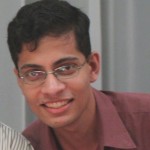Rawls’s veil of ignorance is supposedly justified because it makes the initial choice situation procedurally fair. It supposedly does this by preventing parties from using morally irrelevant information about the persons they represent to obtain an unfair bargaining advantage over others. The success of this argument rests crucially on the idea that at least some rational mutually disinterested parties without a veil of ignorance would in fact successfully use information about the persons they represent to obtain an unfair bargaining advantage over other parties. I will argue in this paper that even in a choice situation identical to Rawls’s Original Position except for the lack of a veil of ignorance, no party has any bargaining advantage over the other. I analyse the notion of a bargaining advantage in terms of the best alternative to negotiated agreement (BATNA) and the propensity towards unacceptable outcomes. A difference in BATNA between two parties is necessary in order for there to be a bargaining advantage of one over the other. Also, plausibly, outcomes that are unacceptable to only some of the parties contra-indicates equality of bargaining power. I show that all parties in a choice situation without a veil of ignorance have equally bad BATNA. I will show that the veil of ignorance is neither necessary nor sufficient to prevent unacceptable conceptions of justice from being agreed to in the Original Position. If the analysis of the Original Position is correct, there is no reason to think that a choice situation without a veil provides some parties a bargaining advantage over others. The analysis of Rawls’s argument also suggests an alternative justification of the veil of ignorance: that it is an appropriate simplification of another choice situation which would necessarily deliver the correct principles of justice.
Graduate Seminar Series.
Date: Tuesday, 15 Apr 2014
Time: 2 pm – 3 pm
Venue: Philosophy Resource Room (AS3 #05-23)
Speaker: Anantharaman Muralidharan
About the Speaker:
 Murali’s thesis is concerned with trying to find a more general justification for the Rawlsian framework. He isinterested in broadly trying to derive and defend a free-standing theory of justice. At the same time he isinterested in democracy and justifications for it. He is also interested in social epistemology and its implications for democracy.
Murali’s thesis is concerned with trying to find a more general justification for the Rawlsian framework. He isinterested in broadly trying to derive and defend a free-standing theory of justice. At the same time he isinterested in democracy and justifications for it. He is also interested in social epistemology and its implications for democracy.







